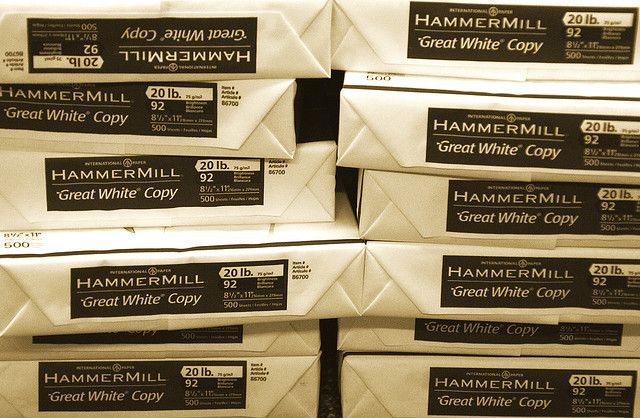Sales Tax Errors, Exemptions, and Marketplace Fairness
- Apr 22, 2013 | Gail Cole

It is probably safe to say that no one likes to be charged too much tax. Where people differ is how they respond once they realize that too much tax has been collected. Some contact the retailer, point out the error, and ask for a refund. Some request a refund from their state department of revenue. Still others sue.
Erroneously collected sales tax has even triggered class action law suits, such as Judy Avallone v. Sears Holding Corp.
In a recent article in Forbes, Peter J. Reilly points out that while "class action law suits serve a social purpose… there are some class action lawsuits that are really obnoxious." He supports this claim with a description of the Sears suit, wherein Ms. Avallone led a class action suit against Sears over $2.61 worth of sales tax.
New Jersey allows an exemption for Disposable Household Paper Products, but when Ms. Avallone purchased a variety of disposable paper products at a New Jersey K-Mart, the store charged her sales tax. It is presumed that whoever set up the point of sale system for K-Mart (or its parent company Sears) was not aware of the exemption. Given the many sales tax exemptions that exist in New Jersey and other states, it's not hard to imagine how one could be overlooked.
Relevant New Jersey law states:
"A purchaser may seek a refund of over-collected sales or use tax from the seller. This refund procedure shall provide the first course of remedy available to a purchaser seeking such a refund." (N.J.S.A 54:32B-20c).
The court notes that neither Ms. Avallone nor the Class gave Sears a written notice requesting a refund.
However, if the vendor has already submitted the tax to the State, the taxpayer must complete a Claim for Refund … and include supporting documents to substantiate the claim." (N.J.A.C. 18:2-5.8).
The court notes that the collected taxes were "provided to the State" by the vendor, and that "[n]o refund claims have been filed with the Division of Taxation" by Ms. Avallone or the Class.
It is curious that a woman savvy enough to know about the exemption didn't know to seek a refund from the store or the NJ Division of Taxation. The court must have found that curious, too, for the case was dismissed.
This case is entertaining in a way, but it's also revealing. More and more states want out-of-state retailers to collect and remit sales tax on their behalf. Remote vendors have repeatedly argued that to do so would be an undue burden for them because there are so many different sales tax jurisdictions; a company that sells to customers in all 50 states would have to keep track of sales tax rates and exemptions in all 50 states and thousands of cities and counties.
Legislation has been proposed at the federal level that would both allow states to require remote sellers to collect state and local sales tax, and require states to simplify their sales tax laws. The Marketplace Fairness Act of 2013 had strong support during a symbolic vote by the senate late last month. Senator Harry Reid (D-NV) has moved to bring the legislation to the Senate floor early next week, by-passing the Senate Finance Committee and going going straight to a vote. A procedural vote is expected on Monday, April 22.
How does your business handle sales tax exemptions?

